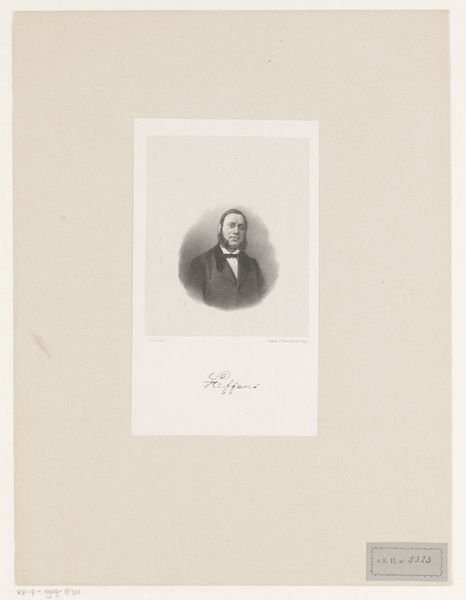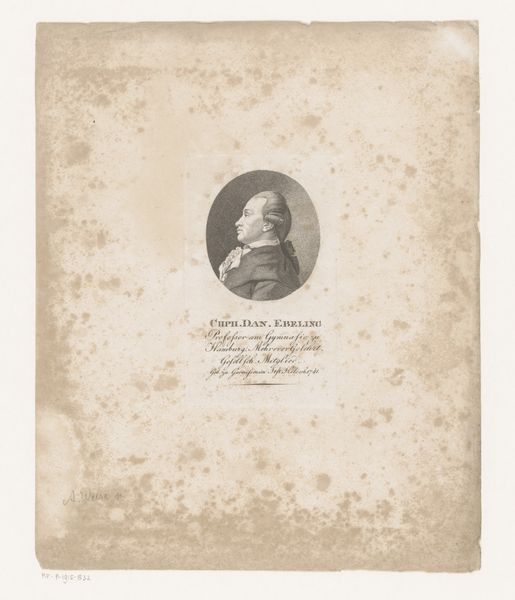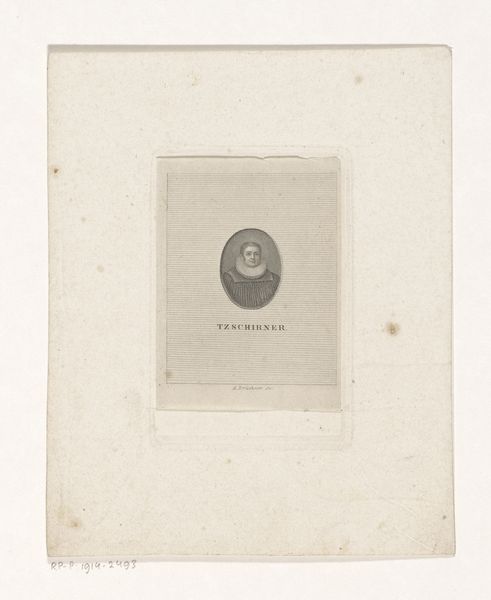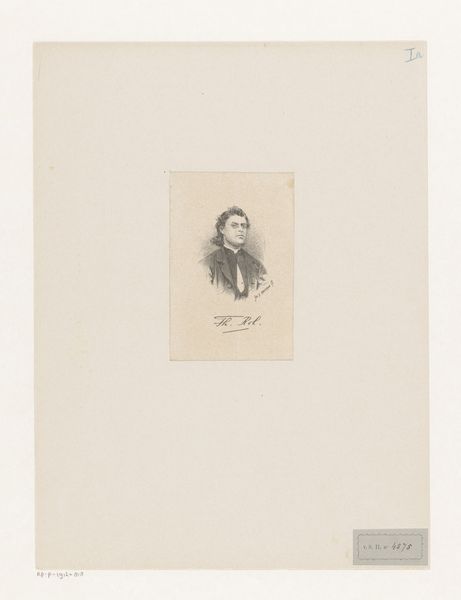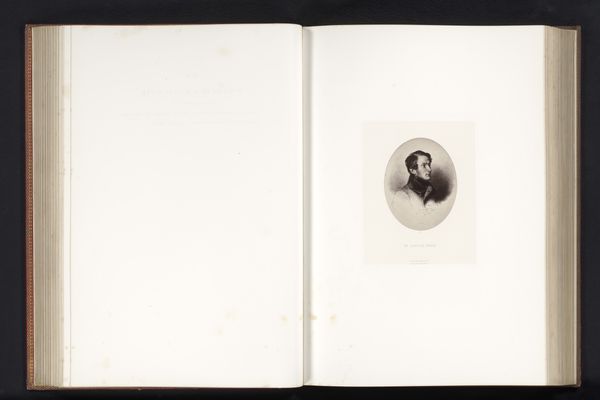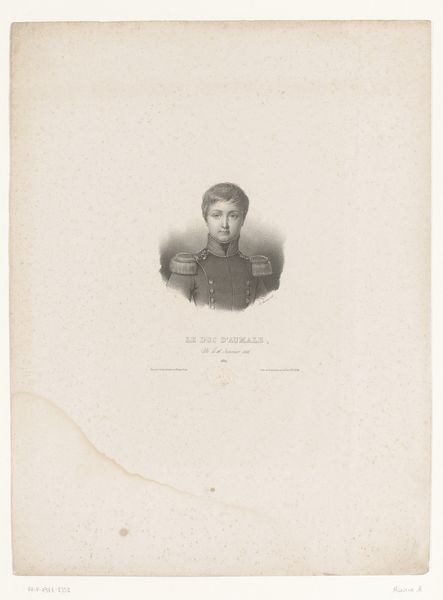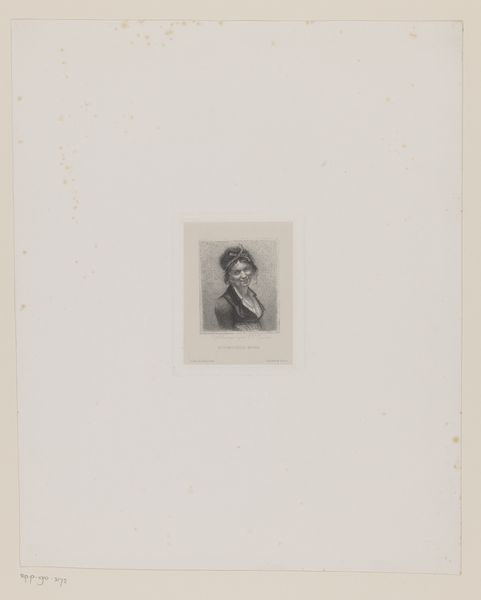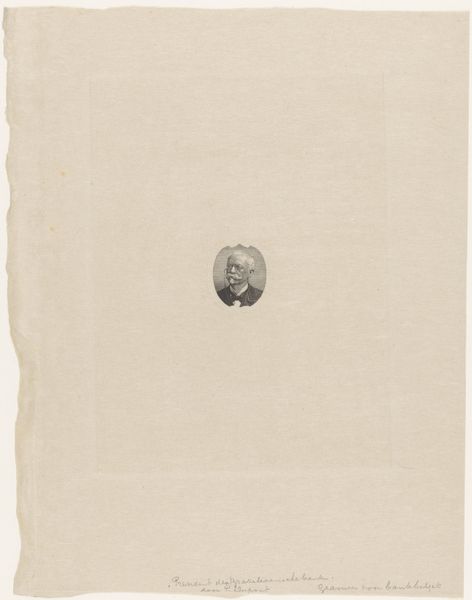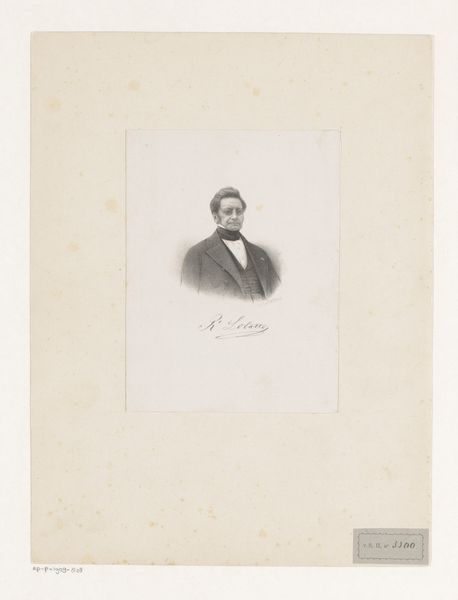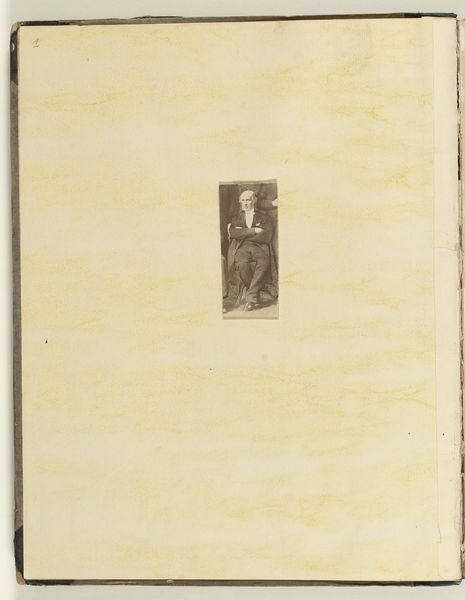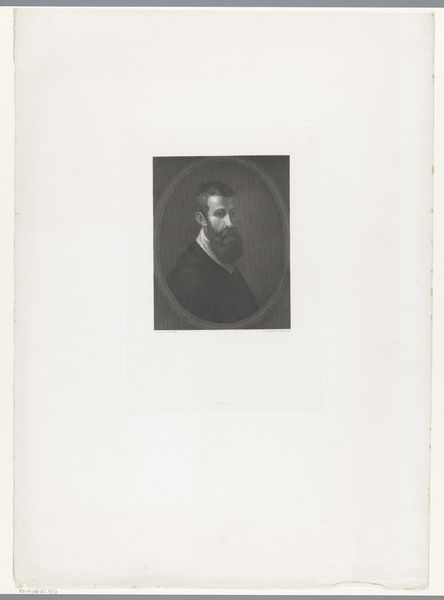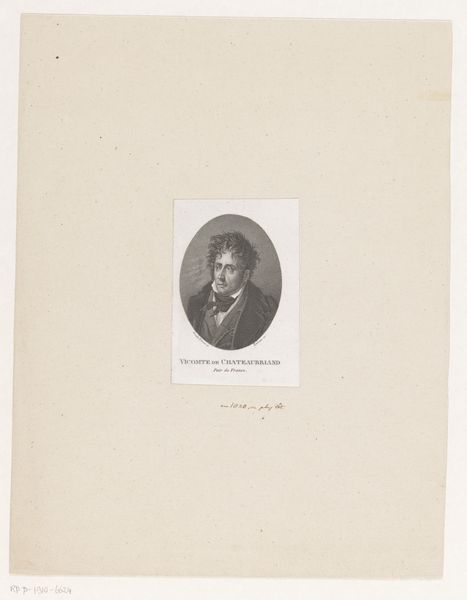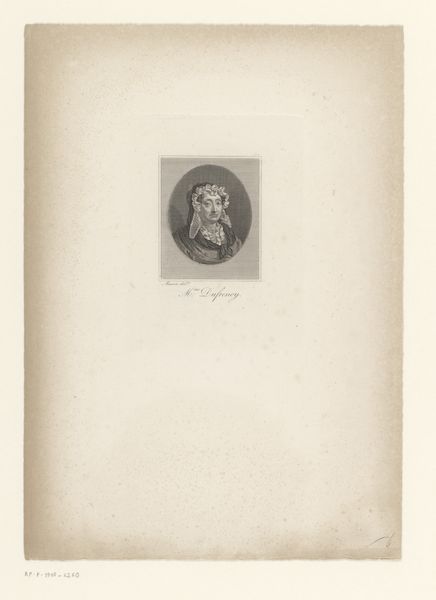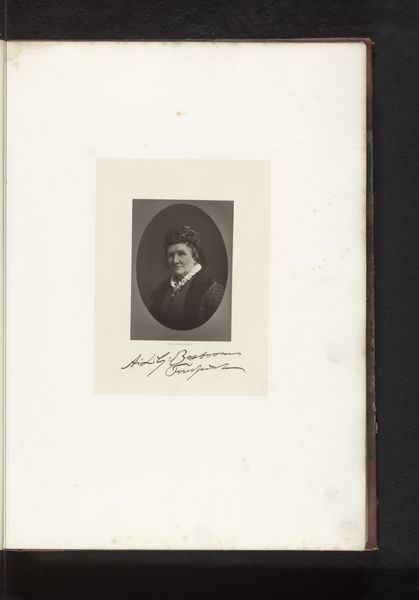
#
portrait
#
16_19th-century
# print
#
realism
Dimensions: height 138 mm, width 101 mm
Copyright: Rijks Museum: Open Domain
This print of Wenzel Messenhauser was made by Franz Zastera, likely using a process called lithography. Lithography allowed for the relatively quick, cheap reproduction of images. It democratized image-making, putting portraits and other visual information in the hands of a wider public. The process involves drawing on a flat stone or metal plate with a greasy substance, then treating the surface so that ink adheres only to the drawn areas. This print has an intimate, personal feel, capturing the sitter's likeness in a way that reflects both the artistry of Zastera and the mechanical precision of the medium. The choice of lithography speaks volumes about the society of the time, which had implications for the fine arts too. It signals a shift toward mass production and consumption, where even portraiture becomes a commodity. It challenges traditional hierarchies of artistic value, inviting us to consider the social and economic forces that shape our understanding of art.
Comments
No comments
Be the first to comment and join the conversation on the ultimate creative platform.
